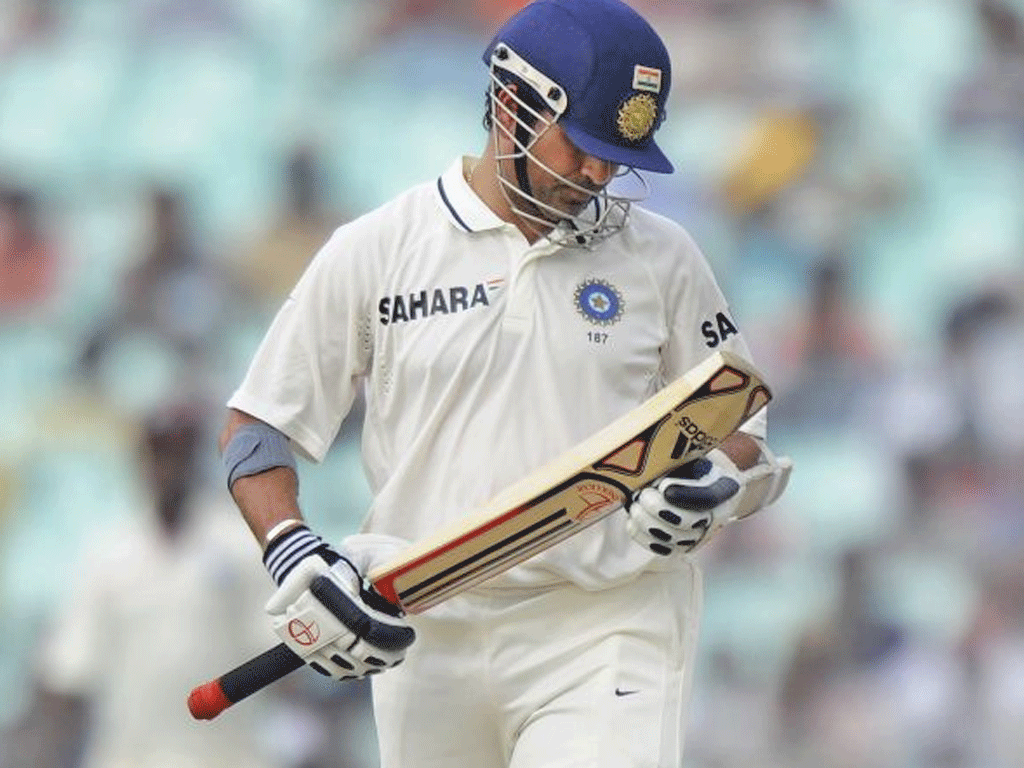Suresh Menon: Time ebbing away for Sachin Tendulkar and old order as India team starts to disintegrate
The Indian Angle

Your support helps us to tell the story
From reproductive rights to climate change to Big Tech, The Independent is on the ground when the story is developing. Whether it's investigating the financials of Elon Musk's pro-Trump PAC or producing our latest documentary, 'The A Word', which shines a light on the American women fighting for reproductive rights, we know how important it is to parse out the facts from the messaging.
At such a critical moment in US history, we need reporters on the ground. Your donation allows us to keep sending journalists to speak to both sides of the story.
The Independent is trusted by Americans across the entire political spectrum. And unlike many other quality news outlets, we choose not to lock Americans out of our reporting and analysis with paywalls. We believe quality journalism should be available to everyone, paid for by those who can afford it.
Your support makes all the difference.Indian cricket is at the crossroads. One path leads to the Indian Premier League, the other to more Test match defeats if these are seen merely as the price for wearing white clothes on the field. Only Pakistan, Sri Lanka and Bangladesh would have played fewer than India's nine Tests by the end of this year.
The Indian team have a job on their hands – specific and time bound – and that is to win the Nagpur Test match to level the series against England. The selectors have a job on their hands too – general and not bounded by time or place – and that is to rebuild a team that was once No 1 but has been demoralised by a succession of defeats.
Yet, the tasks are allied, and how the specific job is done will have a bearing on how the general one is approached. The big decisions may have been postponed by a week, even if they do not officially have to be made before the next series begins.
If India win in Nagpur, the old order will survive – and that means skipper MS Dhoni will retain his job and Sachin Tendulkar will have a few more weeks to make up his mind, meanwhile filling newsprint, the airwaves and cyberspace with lengthy, passionate, and ultimately inconclusive debates.
A draw might see the end of Dhoni's reign as he would become the first captain in 27 years to lose a home series to England and the first to lose any home series in eight years. A defeat should, in all fairness, definitely end it especially since the skipper has got away unscathed after two disastrous series abroad.
At the end of the Kolkata defeat he said it would be irresponsible of him to quit now when the team is down, which is an argument for not quitting at all. For why would you quit when the team is doing well?
Indian cricket hasn't been big on accountability. It is a reflection of the policy of the cricket board which sees itself above either transparency or accountability.
The sight of an England team coming together under an inspiring captain has contrasted sharply with that of an Indian team disintegrating under a leader too concerned with the here and now, and too slow to ring the changes even as he watches a once-great team slide down the tube.
Admittedly not everything is his fault. Not all great teams have handled transition well. The West Indies, riding on the conveyor belt of fast bowlers and attacking batsmen, didn't, nor did Australia more recently. Both teams had one thing in common with India. They were not a team of just very good players; they were a collection of contemporary greats and that does not always happen in the same generation.
As early as 2004 in Australia, there was speculation that India's top order might be the finest line-up of all time: Sehwag, Chopra, Dravid, Tendulkar, Ganguly, Laxman. The 1948 Invincibles' batting order in Bradman's last Test was: Barnes, Morris, Bradman, Hassett, Miller, Harvey. The West Indies in the 1980s could call upon Greenidge, Haynes, Kallicharan, Richards, Lloyd, Gomes.
Only Tendulkar remains of that middle order and, in his 23rd year, he has been consistently misreading length. It is like a great musician struggling with scale – what was once taken for granted now causes embarrassment.
Any all-time Indian squad will contain at least half a dozen players who made their debut after Tendulkar; the bowlers Anil Kumble, Javagal Srinath, Zaheer Khan to add to the batting list. It has been the golden age of Indian cricket and now that is history.
India must accept that and move on. And if the captain and the most senior player are clogging up the system, they must be told. It is difficult not to feel sympathy for Zaheer Khan, a warrior who had to be dropped. But that is the way of sport.
The old order makes way for the new and selectors have to fulfil themselves in many ways, lest one poor selection should corrupt the team.
Suresh Menon is editor of 'Wisden India Almanack'
Join our commenting forum
Join thought-provoking conversations, follow other Independent readers and see their replies
Comments